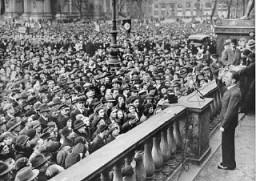You searched for: 点赞分享赚钱系统定制开发【TG���������@EK7676】平台包网搭建点赞分享赚钱系统定制开发【TG���������@EK7676】平台包网搭建45lYiA56c7
<< Previous | Displaying results 121-130 of 136 for "点赞分享赚钱系统定制开发【TG���������@EK7676】平台包网搭建点赞分享赚钱系统定制开发【TG���������@EK7676】平台包网搭建45lYiA56c7" | Next >>
-
Manya Moszkowicz
ID CardManya was born in Chmielnik, a small Polish town that had a Jewish community dating back to the 16th century. Her father owned a furniture shop and her mother took care of the home. Manya had two younger brothers, David and Mordechai, and was surrounded by many close relatives. She attended both public and Hebrew schools and had many friends. 1933–39: In 1938 Manya's family moved to Sosnowiec, a larger city located near the German border. There she had her first experience with antisemitism. Signs…
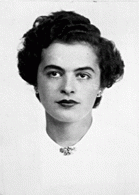
-
Gerd Jacob Zwienicki
ID CardGerd was the eldest of four children. His father, Josef, had left Ukraine in 1913 and opened a bicycle sales and repair shop in Bremen. His mother, Selma, was descended from a distinguished Jewish family and had been a kindergarten teacher and a bookkeeper for a large firm. As a child, Gerd experienced the hardships of the Depression and witnessed the violent street fights between the Nazis and their political opponents, the Communists and Socialists. 1933–39: When the Nazis came to power in 1933, Gerd…
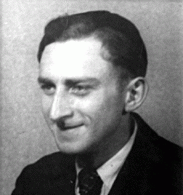
-
Helen (Helene Katz Wohlfarth) Waterford describes giving up her daughter to be sheltered
Oral HistoryAlthough originally from Germany, Helen was living in the Netherlands with her husband and young daughter when the Germans invaded in May 1940. Helen and her husband sent their daughter to non-Jewish friends, and went into hiding themselves. They stayed in a variety of places arranged by a friend who was active in the underground. On August 25, 1944, Helen and her husband were arrested. They were sent first to Westerbork and then to Auschwitz, where they were separated. Helen worked in the I. G. Farben…
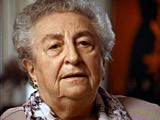
-
Sophie Turner-Zaretsky describes how her teddy bear came into her possession
Oral HistorySophie was born Selma Schwarzwald to parents Daniel and Laura in the industrial city of Lvov, two years before Germany invaded Poland. Daniel was a successful businessman who exported timber and Laura had studied economics. The Germans occupied Lvov in 1941. After her father's disappearance on her fifth birthday in 1941, Sophie and her mother procured false names and papers and moved to a small town called Busko-Zdroj. They became practicing Catholics to hide their identities. Sophie gradually forgot that…
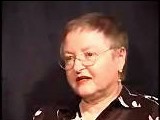
-
Ruth Webber describes the bitterness that she felt after the end of the war when she was in an orphanage in Krakow
Oral HistoryRuth was four years old when the Germans invaded Poland and occupied Ostrowiec. Her family was forced into a ghetto. Germans took over her father's photography business, although he was allowed to continue working outside the ghetto. Before the ghetto was liquidated, Ruth's parents sent her sister into hiding, and managed to get work at a labor camp outside the ghetto. Ruth also went into hiding, either in nearby woods or within the camp itself. When the camp was liquidated, Ruth's parents were split up.…
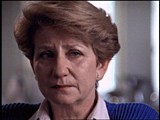
-
Ruth Webber describes the bitterness that she felt after the end of the war when she was in an orphanage in Krakow
Oral HistoryRuth was four years old when the Germans invaded Poland and occupied Ostrowiec. Her family was forced into a ghetto. Germans took over her father's photography business, although he was allowed to continue working outside the ghetto. Before the ghetto was liquidated, Ruth's parents sent her sister into hiding, and managed to get work at a labor camp outside the ghetto. Ruth also went into hiding, either in nearby woods or within the camp itself. When the camp was liquidated, Ruth's parents were split up.…

-
Lachwa
ArticleThe Lachwa ghetto was established in Łachwa, Poland in April, 1942. Learn more about the ghetto and uprising.
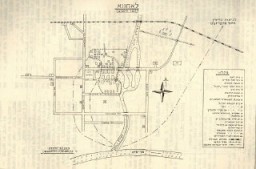
-
Bremen-Farge
ArticleLearn more about Bremen-Farge, a subcamp of Neuengamme where the majority of prisoners were used to construct an underground U-boat shipyard for the German navy.
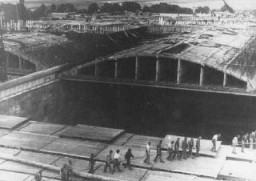
-
The Order Police
ArticleThe Order Police (Ordnungspolizei, Orpo) were Nazi Germany’s uniformed police forces. They became perpetrators of horrific crimes and played a significant role in the Holocaust.
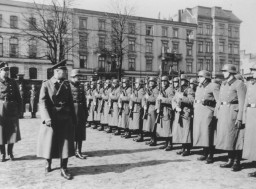
-
Joseph Goebbels
ArticleJoseph Goebbels, Nazi politician, propagandist, and radical antisemite, was Reich Minister for Propaganda and Public Enlightenment from 1933 until 1945.
